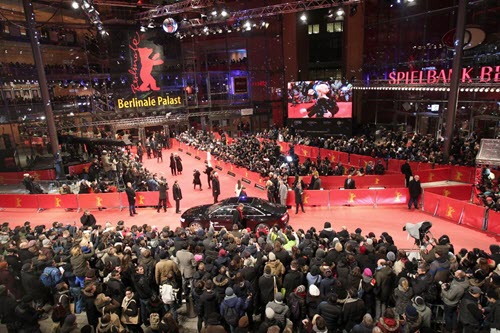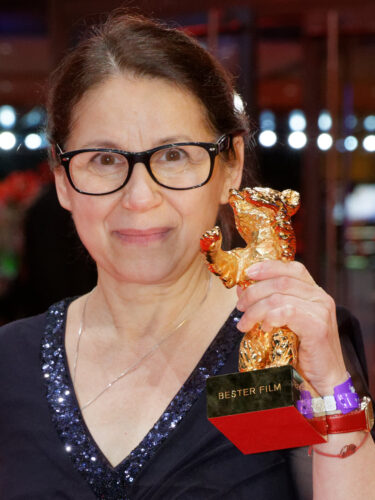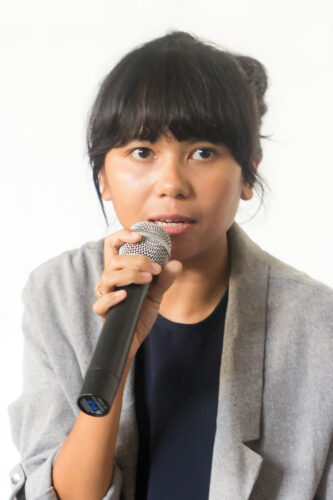Berlin International Film Festival (Berlinale)
- April 15, 2021
- Posted by: admin
- Category: Culture

Early beginnings & current status of the Berlinale
The Berlin International Film Festival, better known as Berlinale, is one of the three most important film festivals in the world and is held annually in Germany’s capital Berlin. Most people do not know that despite being held in Berlin, the idea for a Berlin film festival originated from a film officer of the US Army named Oscar Martay who was stationed in Berlin after the Second World War. Besides coming up with the idea, Mr. Martay also used his contacts and influence, to convince the American military administration to support the Berlinale during the first years after its inception. The first Berlinale opened its doors at the beginning of the Cold War in 1951.
Today with around 300.000 tickets sold and 500.000 admissions yearly, the Berlinale boasts the largest viewer numbers of any annually held film festival. Each year about 20 films compete for the festival’s main awards, the Golden Bear and several Silver Bears. With up to 400 films from different genres and sections of the film landscape shown, it caters to a variety of audiences and poses a vital event for global film culture.
Time & Place
The premiere edition of the Berlinale took place from 06th-17th June 1951 at the Titania-Palast Cinema with the awards ceremony on the night of 18 June 1951. In 1957 the festival was moved to the Zoo Palast Cinema and starting from 1978 the annual time frame of the festival was moved to February.
The 2021 edition of the Berlinale differs substantially from prior editions. Due to the circumstances brought on by the Corona pandemic, the festival is divided in two separate events:
- From 1st-5th March 2021 the 71st Berlinale was held as industry event for film professionals and the accredited press. The entire event took place online only.
- From 9th-20th June 2021, a Summer Special will provide an opportunity for the general public to watch a selection of the best Berlinale 2021 contributions at cinemas in Berlin, including opportunities to meet some of the film makers.
The Golden Bear
The award ceremony is one of the most anticipated parts of a film festival. It determines the most critically acclaimed films of the year and decides which filmmakers have submitted the best productions. At the Berlinale, filmmakers can win two awards, i.e. the Golden Bear and the Silver Bear
The selection of the bear as the prestigious award has its own interesting (hi)story. The eccentric German female Sculptor Renée Sintenis originally designed it in 1932 as a small statue people would put on a shelf at home. It was inspired by the heraldic mascot of Berlin and it would later become the symbol of the festival. The original design had the bear standing on its rear legs and in 1960 it was changed with the bear’s left food slightly elevated. At the same time, its size was also enlarged and nowadays it stands 20 cm tall and weighs 4 kg.
So what is the difference between the Golden Bear and the Silver Bear? In accordance with the coloration, the Golden Bear is the highest award of the festival and is awarded to the winners in the categories Best Motion Picture, Best Short Film, and Lifetime Achievement. The Silver Bear on the other hand was introduced in 1956 as an individual award for Best Directing, Best Actor and Actress, Best Writing, Best Production and Second Best Short Film.

Program of the Berlinale
Besides the award ceremony, the festival comprises of several other activities. In total there are seven different film sections which visitors of the Berlinale can choose from:
- Competition: showcases feature-length films yet to be released outside their country of origin. Films in this section compete for various prizes, including the Golden Bear for the best film and a series of Silver Bears for acting, writing and production.
- Panorama: comprises independent and new arthouse films, which take up controversial subjects or unconventional aesthetics. Submissions in this category aim to stimulate discourses and provoke discussions.
- Forum: comprises experimental films and documentaries from all over the world with an emphasis on submissions by young filmmakers. This category does not have restrictions with regards to genre or format and films in this sub-section do not compete for awards.
- Generation: comprises a mix of short and feature-length films aimed at a young audience. Submissions in this category compete in two sub-categories: generation KPlus (for those aged 4 years and above) and Generation 14plus (for those aged 14 years and above). The winners are determined by three separate juries – Children’s Jury, Youth Jury and an international jury of experts – which decide on the awards independently from each other.
- Perspektive Deutsches Kino: comprises of a selection of German made films with an emphasis on the latest trends in German cinema. The section sets few requirements for local filmmakers in order to be able to screen their productions in front of the audience consisting of local and international viewers. Thus, it enables the audience to glimpse different perspectives of the German film landscape.
- Berlinale Shorts: comprises local and international short films, in particular films that display an innovative approach in filmmaking. Films in this section compete for the Golden Bear, which is awarded for the best short film as well as for a Silver Bear nominated by the jury.
- Retrospective: comprises classic films that have been shown at the Berlinale in the past with the films being taken from the categories Competition, Forum, Panorama, and Generation. Every year the section Retrospective is dedicated to a particular topic or an important filmmaker. A special Homage series takes a look at past cinema and honors the life work of directors and actors.
Traces of Indonesia at the Berlinale

As one of the largest international film festivals in the world, the Berlinale of course provides many opportunities for foreign filmmakers to participate in this prestigious event. From Indonesia, Kamila Andini is one of several young filmmakers who left their marks on the Berlinale. Her debut as a director “The Mirror Never Lies” was screened in 2012 at the Berlinale under the category Generation. The film tells the story of a young girl in a fishing community in Wakatobi who is looking for her father who was lost at sea. With her latest submission at the Berlinale in 2018, Kamila Andini won the Grand Prize of the Generation Kplus International Jury for the film “Sekala Niskala (The Seen Unseen)”.
